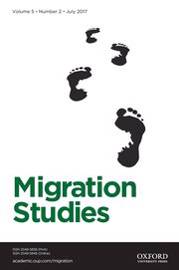
In a new article published in Migration Studies, Rojan Tordhol Ezzati examines expressions of unity through value-talk after terrorism in Norway (2011) and France (2015). The analysis examines television news in the two countries and shows that the way national leaders talk about 'our values' can either underline unity or further underline conflict.
Ten years have passed since the terror attacks in Oslo and Utøya, committed by a self-proclaimed defender of the Christian civilization. In the days and weeks that followed these attacks, references to ‘our values’ as a source of unity were a substantial part of public debate in Norway. Leaders, the media, and the public emphasized ‘values’ to express that ‘we’ were united across ethnic, religious, and political differences. Similar expressions of unity have followed terrorist attacks elsewhere in Europe, including after those committed by self-proclaimers of an Islamic State in France in 2015.
The article comparatively examines formulations of ‘we’, ‘us’, and ‘them’ with reference to ‘values’, what it refers to as value-talk, after terrorist attacks in France and in Norway. To access the events as they were unfolding, it examines the first week of national television news.
By examining expressions of unity in such contexts of conflict, Rojan Tordhol Ezzati argues that value-talk is more dynamic and flexible than the otherwise common idea expressed in public debate that ‘values’ embody a fundamental divide between ‘natives’ and immigrant populations. Through the study of value-talk in the immediate aftermath of terrorist attacks, the article explores some of the dimensions of how and when unity is mobilized in societies marked by migration-related diversity. With that, the article goes beyond the common description and analysis of the evils of extremism, and rather explores the potential for unity, which is present, yet usually not the main point of attention in public debate and in research analysis.
The article is part of the projects Negotiating values: collective identities and resilience after 22 July and Negotiating the nation: implications of ethnic and religious diversity for national identity.





